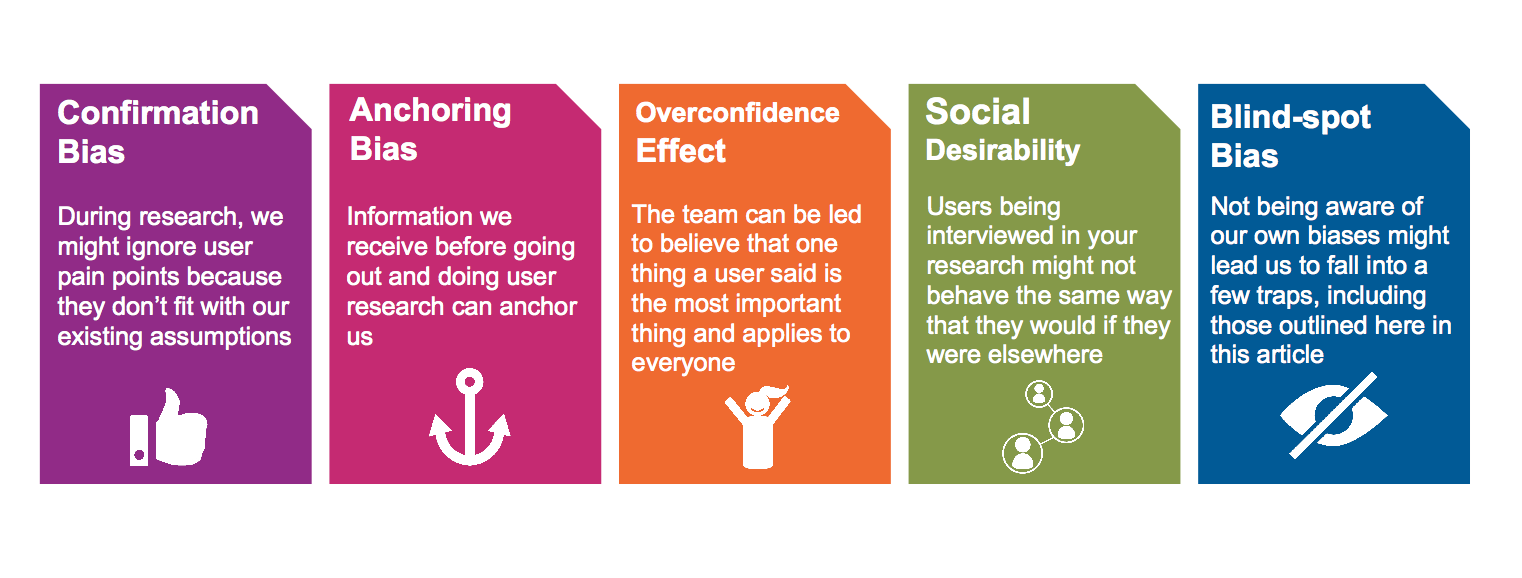Five cognitive biases to avoid in user research

Fabio Pereira of Australia’s Digital Transformation Office (DTO) explains why we need to be aware of our own biases and how they can affect user research (or “Discovery” as DTO’s Lisa Reichelt calls this initial stage).
As human beings, we think we make rational decisions every day, but in fact, we’re all seeing the world under a set of behavioral illusions that can really muck up our decision making. These are called cognitive biases. They are sort of like optical illusions, but instead of interfering with the way we see things, they get in the way of our behavior when we make decisions and solve problems. Being aware of these biases can help us make better decisions.
In this article, Fabio put together a list of some examples of cognitive biases that can affect the Discovery phase, what their impact is, and how to avoid them.



